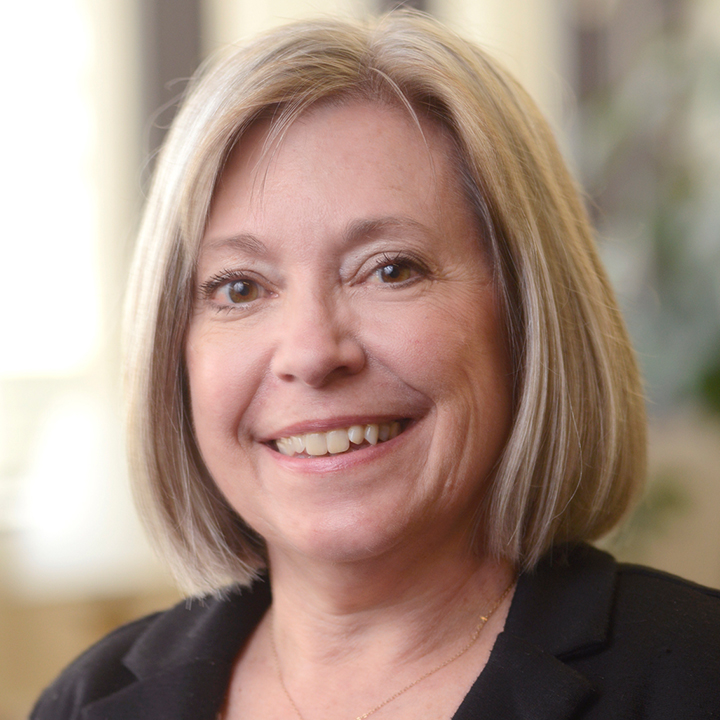Dorothy Sendelbach, M.D.
- Professor, Pediatrics | Undergraduate Medical Education
- Assistant Dean
- Master, Fashena College
- Nadine and Tom Craddick Professorship in Medical Education
- Distinguished Teaching Professor, UT Outstanding Teaching Award; SWAT past president

“Every challenge is an opportunity for growth; embrace it.”
Contributions to STEMM
As Assistant Dean of Undergraduate Medical Education, Dr. Sendelbach “provides oversight and leadership for the Clerkship and Post Clerkship phases of the Medical School curriculum. It is my job to make sure that clerkships are teaching, and students are learning the requisite skills to become excellent physicians. These are the educational phases that focus on the application of foundational medical knowledge in the clinical environment, the acquisition and honing of bedside skills, and where students learn about the ‘art of medicine,’” she said.
“My job is to view the clinical curriculum in a holistic way and make certain that all the pieces fit together in a comprehensive and cohesive manner.”
Another large part of Dr. Sendelbach’s role at UT Southwestern “is to ensure that we are in compliance with all accreditation standards related to these phases of the curriculum. The Liaison Committee on Medical Education, the accreditation body for U.S. Medical Schools, has a long list of standards we must meet to remain in good standing,” she said. Specifically, “one of the clerkship requirements for students is completion of a 12-week Scholarly Activity; I direct the Medical Education Scholarly Activity Track, one of multiple tracks students can choose from. This is unique among medical schools, allowing students to take a dive into the science and scholarship of medical education.”
In her role as a mentor, Dr. Sendelbach serves as Master of Fashena College. Here, “I have the opportunity to mentor other faculty as well as students, helping to shape the skills training curriculum implemented well before students enter clerkships, and making sure that our students arrive to the clerkship phase with adequate skills to succeed,” she said. “It’s a privilege to have a positive impact on the education of our very gifted medical students.”
Early Influences
“I always loved school, and always loved math and science; I am also stubborn (pig-headed maybe), and don’t like to be told I cannot do something,” Dr. Sendelbach said of her early experiences with STEMM. “So, in 1978, I was one of two women out of 40 students in Chemical Engineering, and graduated summa cum laude. I knew that while I enjoyed the problem-solving aspects of engineering, that I would be happier in a career that would serve others, so medicine it was. I was able to combine my passions for science, problem solving, and service all in one and it’s been a wonderful career.”
Taking Risks
“There is no forward progress without taking risks, and I cannot imagine achieving success without encountering barriers and setbacks,” Dr. Sendelbach said. However, “with each frustration, there is the opportunity to learn and be more effective with the next try. I’ve learned that perfection is the enemy of progress and have given myself the grace to be less than perfect to achieve incremental success.”
The UT Southwestern Difference
“Over the years my responsibilities have evolved, from primarily patient care to primarily educational leadership. I have enjoyed every step of the way, and I love being engaged in an intellectually stimulating community, but what stands out as most satisfying to me is mentoring others and having a positive role in the education of thousands of medical students and residents over the years,” she said. Dr. Sendelbach cited “supporting a student or junior colleague in their path to success,” as “the most gratifying thing I can imagine.”
View Academic Profile